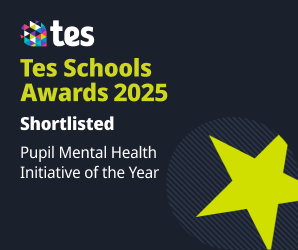Food Preparation and Nutrition
What is the intent of our Preparation and Nutrition Curriculum?
Our aim is for our students to develop an understanding of food, healthy eating, food safety, storage, preparation and making skills so that our students can make informed decisions in adult life about food that they are consuming.
Food Preparation and Nutrition is a creative practical and fun subject. It allows students to be imaginative and demonstrate hands on experience. Our students use their skills to make products, and these products are taken home and shared with family and friends. This gives students a real sense of achievement and self-worth, with those of all abilities able to achieve.
The aim of the Food Preparation and Nutrition department is to provide each and every student the opportunity to develop a knowledge and understanding of a broad range of practical skills, techniques and recipes. Food Preparation and Nutrition is a popular subject and students are provided with an opportunity to be creative and independent. Students can explore their creativity in cooking and preparing a variety of dishes. Cooking and healthy eating is an important life skill and Food Preparation and Nutrition is focused on preparing healthy dishes safely and hygienically. Students will explore healthy eating and balanced diets and will learn about the nutritional needs of different groups in society. Students will learn how to adapt basic recipes for different target audiences and social groups. The study of making will also include the characteristics of a broad range of ingredients, including their nutritional, functional and sensory properties.
Co-curricular and Enrichment opportunities
- Our department aims to enrich our student’s development and love of our subject further, the following are examples of enrichment opportunities we currently offer;
- Cookery club – meal ideas and cooking dishes from around the world
- Master class in cake decorating – perfecting decorating techniques and presentation of food
- SKA ‘bake off’ – students competing with their flare and skills to be the next SKA bake off winner
- Afternoon tea competitions
- Intervention clubs for all GCSE students
Useful Resources and Revision Support
Years 7, 8 & 9
Year 7
- Understand and apply the principles of food safety and hygiene
- Understand the basics of nutrition and apply principles to practical work
- Understand the principles of healthy eating, using advice like that of the Eatwell Guide and the 8 tips for healthy eating, to apply understanding their own diet
- Identify the nutritional needs of different groups people
- Students will have an introduction to food provenance, working with seasonal ingredients and understanding food waste
- Students will be able to demonstrate their knowledge and understanding of the above concepts, when designing, planning and evaluating food products
- Students will be able to demonstrate a range of food preparation and cooking skills
- Students will be able to adapt and follow recipes, using ingredients and equipment to prepare and cook a range of food products
Examples of Practical Work:
- Sandwiches and pizza putt pinwheels – an introduction to food hygiene and safety and knife skills
- Potato scones – using equipment and shaping and forming
- Christmas products – based on the Eatwell guide
- Designing and making own pizza (scone base)
- Adapted muffins to suit nutritional needs of teenagers
- Skills in making butter
- Mini carrot cakes for food provenance and advancing knife skills
- Fruit salad creations
Year 8
- Students continue to apply the principles of food safety and hygiene at a greater depth
- Student are able to recall and apply the principles nutrition, principles of The Eatwell Guide and the 8 tips for healthy eating
- Students are able to explain energy needs and how nutritional needs change through life
- Students are able to apply their knowledge and understanding of food science, from heat transfer to functional and chemical properties of proteins, carbohydrates, and fats
- Students are able to adapt and follow recipes using appropriate ingredients and equipment to prepare and cook a range of more complex dishes
- Demonstrate a wider range of food preparation and cooking techniques
Examples of Practical Work:
- Making a roux/white sauce for either a cauliflower and cheese or pasta bake
- Bolognese sauce – using equipment, food safety, continue to build on knife skills
- Tomato ragu
- Making pasta
- Sponges (Swiss roll) for raising agents and developing skills from simple cakes in year 7
- Decorating Christmas yule log, building on skills from year 7
- Pastry – differentiated to suit and stretch abilities
- Mayonnaise – emulsification
- Bread making
- Hamburgers and vegetarian options
- Fish cakes – shaping, forming, coating
- Desserts with fibre
- Spiced vegetable/chicken samosas, different pastry around the world, continued development of knife skills
Year 9
- Students continue to apply the principles of food safety and hygiene at a greater depth
- Student continue to recall and apply the principles nutrition, principles of healthy eating
- Students are able to explain factors that affect their food/ingredient choices, and understanding how allergies and intolerances also affect food choices
- Students continue to apply their knowledge and understanding of food science
- Students continue to develop and carry out mini practical investigations to test the science behind cooking
- Students continue to adapt and follow recipes using appropriate ingredients and equipment to prepare and cook a range of more complex dishes
- Students continue to analyse/evaluate products made
- Demonstrate a wider range of food preparation and cooking techniques
- Demonstrate an ability to dovetail during cooking when cooking two products or more
Examples of Practical Work:
- Making vegetarian savoury food products
- Mixture of mini practical investigations, for example, looking at different raising agents in baked products
- Making more complex pasta, with flavours or making ravioli
- Decorating a Christmas product - presentation
- Knife skills continued to be developed with different soups and potatoes
- Complex bread making, for example hot cross buns/Chelsea buns
- Complex pastry products – making lemon curd, sweet shortcrust pastry, and meringues for mini lemon meringue tarts
Assessment at Key Stage 3
During year 7-9, work is graded against MYP (Middle Years Programme) as part of our IB Academy. Food Preparation and Nutrition is an integral part of the ‘Design’ section of MYP, which provides our students with;
- Innovation and creativity
- Develop knowledge, understanding, and skills
- Develop an appreciation of the impact of the global society and environments
- Develop respect for others’ viewpoints and appreciate alternative solutions when making
- Act with integrity and honesty, our students take responsibility for their own actions and developing effective working practices.
Years 10 & 11
GCSE Food Preparation and Nutrition
At KS4, Food Preparation and Nutrition is an exciting and creative course that focuses on our students’ development thorough the understanding of food science, nutrition, food provenance and the working characteristics of ingredients. This qualification also focuses on nurturing students’ practical cooking skills. By the end of this course, our students will be able to make connections between theory and practice to apply their understanding of food and nutrition to practical preparation. The main topics covered are:
- Demonstrate a range of effective and safe cooking skills
- Principles of food safety, food spoilage, and contamination
- Demonstrate an understanding of nutrition and the link between food and health
- Develop an understanding of the properties of food, with functional and chemical properties of food
- Explore why food is cooked, different methods of cooking and heat transfer
- Understand the environmental and economic factors linked to food choices
- Explore ingredients and processes for British and international cuisine
- Environmental impact with food and sustainability. Exploring food provenance, and effects of food choices and food production on the global environment
- Demonstrate sensory evaluation
Year 10
Students will continue to build on their knowledge in Food Preparation and Nutrition gained during years 7, 8, and 9 as well as continuing to develop their range of cooking skills. Students will also carry out investigation tasks to test the science behind ingredients and cooking.
Year 11
GCSE Food Preparation and Nutrition is divided into two components:
- Component 1: Principles of Food preparation and Nutrition
- Written examination 1hr and 45 mins. This makes up 50% of the GCSE (100 marks in total)
- The examination paper is made up of 2 sections, both containing compulsory questions and will assess the 9 areas mentioned above.
- Section A: 20 multi choice questions (20 marks)
- Section B: Short and extended response questions (80 marks)
- Component 2: Food preparation and Nutrition in action.
- 2 pieces of NEA (Non-Examined Assessment). This makes up 50% of the GCSE (100 marks in total)
- NEA 1 (30 marks/15% of the GCSE): This assesses students’ understanding of the working characteristics, functional and chemical properties of ingredients. It is presented as a written report (1,500 – 2,000 words) including photographic evidence of the practical investigation.
- NEA 2 (70 marks/35% of the GCSE): This assesses students’ knowledge, skills and understanding in relation to the planning, preparation, cooking, presentation of food and application of nutrition related to the chosen task. Students will prepare, cook and present a final menu of three dishes within a single period of no more than three hours, planning in advance how this will be achieved. It is presented as a written portfolio including photographic evidence.
Extra-Curricular Activities
We currently offer regular intervention/support sessions for all GCSE students who are completing their controlled assessments. These sessions focus on ensuring the pupils have all the elements required to submit a thorough project meeting all of the Assessment Objectives








